A Bachelor Of Travel And Tourism Management prepares graduates for exciting careers in the world’s largest and most diverse industries. SIXT.VN provides expert guidance and convenient travel services to help you explore Vietnam. Unlock unforgettable experiences with our comprehensive services, including seamless airport transfers, handpicked hotel selections, exclusive tour bookings, and affordable flight options.
1. What is a Bachelor of Travel and Tourism Management?
A bachelor of travel and tourism management is a comprehensive degree designed to equip students with the knowledge and skills necessary to excel in the dynamic world of travel and tourism. Graduates can look forward to exciting career opportunities, thanks to the industry’s significant contribution to global employment. According to the World Travel & Tourism Council (WTTC), the tourism industry accounted for one in ten jobs worldwide in 2019, highlighting the vast career potential available.
1.1 What Does a Travel and Tourism Management Program Cover?
A travel and tourism management program generally covers the following key areas:
- Tourism Principles: Foundational concepts in tourism, including its history, evolution, and socio-economic impacts.
- Marketing and Sales: Strategies for promoting tourism destinations and services, including digital marketing, branding, and customer relationship management.
- Financial Management: Budgeting, accounting, and financial planning specific to the tourism industry.
- Operations Management: Managing the logistical aspects of tourism, such as transportation, accommodation, and event planning.
- Cultural and Heritage Tourism: Understanding and preserving cultural heritage sites and integrating them into tourism experiences.
- Sustainable Tourism: Promoting environmentally and socially responsible tourism practices.
- Hospitality Management: Principles of managing hotels, resorts, and other hospitality establishments.
- Event Management: Planning and executing successful tourism-related events and festivals.
- Destination Management: Strategies for managing and developing tourist destinations to maximize their appeal and sustainability.
- Research and Analysis: Methods for collecting and analyzing data to inform tourism planning and decision-making.
1.2 What Skills Will I Develop in a Travel and Tourism Management Program?
Completing a bachelor’s degree in travel and tourism management will equip you with a diverse range of skills, including:
- Analytical Skills: Evaluating market trends, consumer behavior, and the effectiveness of tourism strategies.
- Communication Skills: Effectively communicating with diverse audiences, including customers, colleagues, and stakeholders.
- Customer Service Skills: Providing exceptional service to meet and exceed customer expectations.
- Financial Acumen: Managing budgets, analyzing financial statements, and making sound financial decisions.
- Leadership Skills: Leading and motivating teams to achieve common goals.
- Problem-Solving Skills: Identifying and resolving issues that arise in the tourism industry.
- Strategic Thinking: Developing long-term plans to ensure the success of tourism-related ventures.
- Technical Proficiency: Using technology effectively to manage tourism operations and enhance customer experiences.
- Cross-Cultural Competence: Working effectively with people from diverse cultural backgrounds.
- Project Management: Planning, organizing, and executing tourism projects efficiently.
- Sustainability Awareness: Implementing sustainable practices to minimize the environmental and social impacts of tourism.
- Adaptability: Adjusting to changing market conditions and emerging trends in the tourism industry.
1.3 What Are the Career Paths Available with a Bachelor’s in Travel and Tourism Management?
A bachelor’s degree in travel and tourism management can open doors to a wide array of exciting and rewarding career paths, some of which include:
- Tourism Manager: Overseeing the operations of tourism businesses and organizations.
- Hotel Manager: Managing the day-to-day operations of hotels and resorts.
- Travel Agent: Assisting clients with travel planning, including booking flights, accommodations, and tours.
- Tour Operator: Designing and managing tour packages for individuals and groups.
- Event Planner: Planning and coordinating events, conferences, and festivals.
- Destination Marketing Manager: Promoting tourist destinations to attract visitors.
- Ecotourism Specialist: Developing and managing sustainable tourism initiatives.
- Airline Manager: Overseeing the operations of airlines and airport services.
- Cruise Line Manager: Managing the operations of cruise ships and cruise itineraries.
- Restaurant Manager: Overseeing the operations of restaurants and food service establishments.
- Casino Manager: Managing the operations of casinos and gaming facilities.
- Theme Park Manager: Managing the operations of theme parks and amusement parks.
- Museum Curator: Managing and preserving museum collections and exhibits.
- Travel Writer: Creating content for travel magazines, websites, and blogs.
- Tourism Consultant: Providing expert advice to tourism businesses and organizations.
1.4 Is a Bachelor of Travel and Tourism Management Worth It?
Yes, a bachelor of travel and tourism management is a worthwhile investment for individuals passionate about the tourism industry. According to the U.S. Bureau of Labor Statistics, employment in the leisure and hospitality sector is projected to grow significantly over the next decade, indicating a strong demand for qualified professionals.
- Job Opportunities: Graduates can find employment in various sectors, including hotels, resorts, travel agencies, tour operators, airlines, cruise lines, and event planning companies.
- Salary Potential: According to Payscale, the average salary for individuals with a bachelor’s degree in travel and tourism management ranges from $40,000 to $70,000 per year, depending on experience and job title.
- Personal Fulfillment: A career in travel and tourism can be personally rewarding for those who enjoy working with people, exploring new cultures, and creating memorable experiences for others.
2. What Are the Admission Requirements for a Bachelor of Travel and Tourism Management Program?
Admission requirements for a bachelor of travel and tourism management program can vary depending on the specific institution and country. However, some common requirements include:
- High School Diploma or Equivalent: Applicants typically need to have completed high school or possess an equivalent qualification, such as a GED.
- Minimum GPA: Many universities require a minimum GPA (Grade Point Average) for admission, which may range from 2.0 to 3.0 or higher.
- Standardized Test Scores: Some institutions may require applicants to submit scores from standardized tests such as the SAT or ACT.
- English Language Proficiency: International students whose native language is not English may need to demonstrate English language proficiency through tests like TOEFL or IELTS.
- Letters of Recommendation: Some universities may require applicants to submit letters of recommendation from teachers, counselors, or employers.
- Personal Essay or Statement of Purpose: Applicants may need to write a personal essay or statement of purpose outlining their interests, experiences, and goals related to travel and tourism management.
- Interview: Some institutions may conduct interviews with applicants to assess their suitability for the program.
3. What Can You Expect to Learn From a Bachelor of Travel and Tourism Management Course?
In a bachelor of travel and tourism management course, you can expect to learn a wide range of subjects related to the tourism industry. The curriculum typically covers topics such as:
- Tourism Planning and Development: Analyzing tourism trends, planning sustainable tourism initiatives, and developing tourism policies.
- Marketing and Promotion: Developing marketing strategies to promote tourism destinations and services.
- Financial Management: Managing budgets, analyzing financial statements, and making financial decisions related to tourism operations.
- Operations Management: Managing the day-to-day operations of tourism businesses, including hotels, resorts, and tour companies.
- Human Resources Management: Recruiting, training, and managing employees in the tourism industry.
- Cultural and Heritage Tourism: Understanding and preserving cultural heritage sites and integrating them into tourism experiences.
- Sustainable Tourism: Promoting environmentally and socially responsible tourism practices.
- Hospitality Management: Principles of managing hotels, resorts, and other hospitality establishments.
- Event Management: Planning and executing successful tourism-related events and festivals.
- Research and Analysis: Methods for collecting and analyzing data to inform tourism planning and decision-making.
- Legal and Ethical Issues: Understanding the legal and ethical considerations related to the tourism industry.
- Technology in Tourism: Utilizing technology to enhance tourism operations and customer experiences.
4. What Are Some of the Best Universities Offering Bachelor of Travel and Tourism Management?
Many universities around the world offer excellent bachelor of travel and tourism management programs. Some of the top-ranked institutions include:
- University of Nevada, Las Vegas (UNLV), USA: Known for its strong ties to the hospitality industry and its location in a major tourist destination.
- Les Roches Global Hospitality Education, Switzerland: A leading hospitality management school with a strong focus on practical training and industry connections.
- Oxford Brookes University, UK: Offers a comprehensive tourism management program with a strong emphasis on sustainability and innovation.
- The American University of Rome, Italy: The Travel and Tourism Management program at AUR prepares students for flexible career paths through a combination of theoretical and practical knowledge, field trips, seminars with travel and tourism experts, and hands-on experience.
5. How Can a Bachelor of Travel and Tourism Management Benefit My Career in Vietnam?
A bachelor of travel and tourism management can significantly benefit your career in Vietnam, where the tourism industry is experiencing rapid growth. According to the Vietnam National Administration of Tourism, the country welcomed over 18 million international visitors in 2019, generating billions of dollars in revenue.
5.1 What Are the Key Sectors of the Tourism Industry in Vietnam?
The key sectors of the tourism industry in Vietnam include:
- Accommodation: Hotels, resorts, guesthouses, and homestays.
- Transportation: Airlines, trains, buses, and car rental services.
- Tour Operators: Companies that design and manage tour packages for individuals and groups.
- Travel Agencies: Agencies that assist clients with travel planning and booking.
- Food and Beverage: Restaurants, cafes, and street food vendors.
- Entertainment: Theme parks, cultural attractions, and nightlife venues.
- Retail: Souvenir shops, markets, and shopping malls.
5.2 How Can I Specialize My Studies in Travel and Tourism Management?
Travel and Tourism Management students can choose to specialize their studies in Food Tourism or Cultural & Heritage Tourism.
5.2.1 Cultural and Heritage Tourism
Cultural and Heritage Tourism is a leading sector in Italy, fueled by its immense wealth of artistic, archaeological and architectural treasure, thanks to which it is ranked first in the world for the number of UNESCO World Heritage sites it contains. Students interested in specializing in this area of the travel and tourism industry may concentrate their degree studies in Cultural and Heritage Tourism.
5.2.2 Food Tourism
Italy is (rightly) renowned around the world for its cuisine. An increased tourist interest in local food traditions and the farm-to-table movement have driven an explosion in the food tourism business. Italy is the world’s top producer of wine, a leading producer of fine olive oil, parmesan, and prosciutto, to name just a few products that make it such a heavyweight in the global food market. Students interested in working for organizations involved in the production or promotion of Italy’s unique food traditions can take a concentration in Food Tourism.
5.3 What Opportunities Are Available in the Vietnamese Tourism Industry?
With a bachelor of travel and tourism management, you can pursue various career opportunities in the Vietnamese tourism industry, such as:
- Hotel Manager: Overseeing the operations of hotels and resorts.
- Tour Guide: Leading tours and providing information about local attractions.
- Travel Consultant: Assisting clients with travel planning and booking.
- Event Planner: Planning and coordinating events and festivals.
- Marketing Manager: Promoting tourism destinations and services.
- Restaurant Manager: Managing the operations of restaurants and food service establishments.
- Tourism Development Officer: Working for government agencies to develop and promote tourism in specific regions.
- Sustainable Tourism Specialist: Promoting sustainable tourism practices in Vietnam.
5.4 How Can SIXT.VN Enhance My Travel Experience in Vietnam?
SIXT.VN offers a range of services to enhance your travel experience in Vietnam, including:
- Airport Transfers: Providing convenient and reliable airport transportation services.
- Hotel Bookings: Offering a wide selection of hotels and accommodations to suit your needs and budget.
- Tour Bookings: Arranging tours to popular attractions and destinations in Vietnam.
- Flight Bookings: Assisting with flight bookings to and from Vietnam.
6. How Does Sustainable Tourism Fit into a Bachelor of Travel and Tourism Management?
Sustainable tourism is an integral part of a bachelor of travel and tourism management program, emphasizing the importance of minimizing the environmental and social impacts of tourism while maximizing its economic benefits. According to the United Nations Environment Programme (UNEP), sustainable tourism can help protect natural resources, preserve cultural heritage, and improve the livelihoods of local communities.
6.1 What Are the Key Principles of Sustainable Tourism?
The key principles of sustainable tourism include:
- Environmental Sustainability: Protecting natural resources, minimizing pollution, and conserving biodiversity.
- Social Sustainability: Respecting local cultures, preserving cultural heritage, and promoting social equity.
- Economic Sustainability: Generating economic benefits for local communities, supporting local businesses, and creating employment opportunities.
6.2 How Can I Promote Sustainable Tourism in My Career?
As a graduate with a bachelor of travel and tourism management, you can promote sustainable tourism in your career by:
- Choosing Eco-Friendly Accommodations: Staying in hotels and resorts that have implemented sustainable practices.
- Supporting Local Businesses: Patronizing local restaurants, shops, and tour operators.
- Respecting Local Cultures: Learning about and respecting the customs and traditions of local communities.
- Minimizing Waste: Reducing waste and recycling whenever possible.
- Conserving Resources: Saving water and energy.
- Educating Others: Sharing information about sustainable tourism with friends, family, and colleagues.
6.3 What Are the Benefits of Sustainable Tourism for Vietnam?
Sustainable tourism can bring numerous benefits to Vietnam, including:
- Protecting Natural Resources: Preserving the country’s natural beauty and biodiversity.
- Preserving Cultural Heritage: Safeguarding cultural sites and traditions.
- Improving Livelihoods: Creating employment opportunities and supporting local businesses.
- Enhancing Vietnam’s Image: Promoting Vietnam as a responsible and sustainable tourism destination.
- Attracting Eco-Conscious Travelers: Appealing to tourists who are interested in sustainable travel experiences.
7. How Important Is Technology in the Travel and Tourism Industry?
Technology plays a crucial role in the travel and tourism industry, transforming the way people plan, book, and experience travel. From online booking platforms to mobile apps and social media, technology has revolutionized the industry, making it more accessible, convenient, and personalized. According to a report by Phocuswright, online travel bookings account for a significant portion of total travel revenue, highlighting the importance of technology in the industry.
7.1 What Are the Key Technological Trends in the Travel and Tourism Industry?
The key technological trends in the travel and tourism industry include:
- Online Booking Platforms: Websites and apps that allow travelers to book flights, hotels, tours, and other travel services.
- Mobile Apps: Apps that provide travelers with information, navigation, and booking services on the go.
- Social Media: Platforms that allow travelers to share their experiences, connect with others, and discover new destinations.
- Artificial Intelligence (AI): AI-powered chatbots and virtual assistants that provide customer service and travel recommendations.
- Virtual Reality (VR) and Augmented Reality (AR): Technologies that allow travelers to experience destinations and attractions virtually.
- Big Data Analytics: Analyzing large datasets to understand customer behavior and personalize travel experiences.
- Internet of Things (IoT): Connecting devices and sensors to improve efficiency and enhance customer experiences.
7.2 How Can I Use Technology to Enhance My Career in Travel and Tourism?
As a graduate with a bachelor of travel and tourism management, you can use technology to enhance your career by:
- Developing Your Digital Skills: Learning how to use online booking platforms, social media, and other digital tools.
- Analyzing Data: Using data analytics to understand customer behavior and trends.
- Creating Engaging Content: Developing engaging content for websites, social media, and mobile apps.
- Providing Personalized Experiences: Using technology to personalize travel experiences for customers.
- Improving Efficiency: Using technology to automate tasks and improve efficiency.
- Staying Up-to-Date: Keeping up with the latest technological trends in the industry.
7.3 How Does SIXT.VN Use Technology to Improve Travel Experiences?
SIXT.VN leverages technology to provide customers with seamless and convenient travel experiences, including:
- Online Booking Platform: A user-friendly website and app that allows customers to book airport transfers, hotels, tours, and flights.
- Real-Time Tracking: Real-time tracking of airport transfers to ensure timely and reliable service.
- Customer Support: 24/7 customer support via phone, email, and chat.
- Personalized Recommendations: Personalized travel recommendations based on customer preferences and interests.
- Secure Payment Gateway: A secure payment gateway to protect customer financial information.
8. What Are Some Emerging Trends in the Travel and Tourism Industry?
The travel and tourism industry is constantly evolving, with new trends emerging regularly. Some of the most important emerging trends include:
- Experiential Travel: Travelers are increasingly seeking authentic and immersive experiences that allow them to connect with local cultures and communities.
- Wellness Tourism: Travelers are prioritizing health and wellness, seeking out destinations and activities that promote relaxation, rejuvenation, and personal growth.
- Adventure Tourism: Travelers are seeking adrenaline-pumping activities and experiences, such as hiking, rock climbing, and white-water rafting.
- Bleisure Travel: Combining business and leisure travel, allowing travelers to explore new destinations while attending conferences or meetings.
- Solo Travel: More people are traveling solo, seeking independence, self-discovery, and personal growth.
- Luxury Travel: High-end travelers are seeking exclusive and personalized experiences, with a focus on luxury accommodations, gourmet dining, and private tours.
- Sustainable Travel: Travelers are becoming more conscious of the environmental and social impacts of their travel choices, seeking out sustainable and responsible tourism options.
8.1 How Can I Adapt to These Trends in My Career?
As a graduate with a bachelor of travel and tourism management, you can adapt to these trends in your career by:
- Staying Informed: Keeping up with the latest industry news, trends, and research.
- Developing New Skills: Acquiring new skills and knowledge to meet the changing demands of the industry.
- Being Flexible: Being willing to adapt to new situations and challenges.
- Embracing Innovation: Embracing new technologies and approaches to tourism management.
- Networking: Building relationships with industry professionals and staying connected with the community.
- Being a Lifelong Learner: Continuously learning and growing throughout your career.
8.2 How Can SIXT.VN Help Me Experience These Trends in Vietnam?
SIXT.VN can help you experience these trends in Vietnam by:
- Offering Experiential Tours: Providing tours that allow you to connect with local cultures and communities.
- Promoting Wellness Retreats: Recommending wellness retreats and activities that promote relaxation and rejuvenation.
- Arranging Adventure Activities: Organizing adventure activities such as hiking, kayaking, and rock climbing.
- Providing Bleisure Travel Packages: Offering packages that combine business and leisure travel.
- Supporting Solo Travelers: Providing resources and support for solo travelers.
- Offering Luxury Travel Services: Arranging luxury accommodations, gourmet dining, and private tours.
- Promoting Sustainable Tourism Options: Recommending sustainable accommodations, tour operators, and activities.
9. What Resources Can Help Me Succeed in the Travel and Tourism Industry?
Numerous resources can help you succeed in the travel and tourism industry, including:
- Industry Associations: Organizations such as the World Travel & Tourism Council (WTTC) and the Pacific Asia Travel Association (PATA) provide valuable resources, networking opportunities, and advocacy for the industry.
- Trade Publications: Publications such as Travel Weekly, Tourism Review, and Skift provide news, insights, and analysis of the industry.
- Online Courses: Platforms such as Coursera, Udemy, and edX offer online courses in travel and tourism management, hospitality management, and related topics.
- Conferences and Trade Shows: Events such as ITB Berlin, World Travel Market, and the Arabian Travel Market provide opportunities to learn about the latest trends, network with industry professionals, and discover new products and services.
- Mentorship Programs: Connecting with experienced professionals who can provide guidance and support.
- Networking Events: Attending industry events to meet new people and build relationships.
- Online Communities: Joining online communities and forums to connect with other professionals and share ideas.
9.1 How Can SIXT.VN Support My Professional Development?
SIXT.VN supports your professional development by:
- Providing Internship Opportunities: Offering internships to students and recent graduates to gain practical experience in the industry.
- Offering Training Programs: Providing training programs to employees to enhance their skills and knowledge.
- Supporting Employee Growth: Encouraging employees to pursue professional development opportunities and advance their careers.
- Providing a Supportive Work Environment: Creating a work environment that is supportive, collaborative, and rewarding.
- Networking Opportunities: Providing opportunities to network with industry professionals and build relationships.
10. What are the Key Differences Between Tourism and Hospitality Management?
While tourism and hospitality management are closely related, they have distinct focuses. Tourism management is a broader field that encompasses the planning, development, and management of tourist destinations and services. Hospitality management, on the other hand, focuses specifically on the management of hotels, resorts, restaurants, and other hospitality establishments.
10.1 What are the Key Skills in Tourism Management?
The key skills in tourism management include:
- Strategic Planning: Developing long-term plans for tourism development and management.
- Marketing and Promotion: Promoting tourism destinations and services to attract visitors.
- Destination Management: Managing and developing tourist destinations to maximize their appeal and sustainability.
- Sustainable Tourism: Promoting environmentally and socially responsible tourism practices.
- Cultural Heritage Management: Preserving and promoting cultural heritage sites and traditions.
- Community Engagement: Working with local communities to ensure that tourism benefits them.
- Policy Development: Developing tourism policies and regulations.
10.2 What are the Key Skills in Hospitality Management?
The key skills in hospitality management include:
- Customer Service: Providing exceptional service to meet and exceed customer expectations.
- Operations Management: Managing the day-to-day operations of hospitality establishments.
- Financial Management: Managing budgets, analyzing financial statements, and making financial decisions related to hospitality operations.
- Human Resources Management: Recruiting, training, and managing employees in the hospitality industry.
- Food and Beverage Management: Managing food and beverage operations, including menu planning, inventory control, and customer service.
- Revenue Management: Maximizing revenue by optimizing pricing and occupancy rates.
- Quality Control: Ensuring that hospitality establishments meet quality standards and customer expectations.
10.3 Which Degree is Right for Me: Tourism or Hospitality Management?
The choice between a tourism or hospitality management degree depends on your career interests and goals. If you are interested in the broader aspects of tourism, such as destination planning, marketing, and sustainable tourism development, then a tourism management degree may be the right choice for you. If you are more interested in the management of hotels, resorts, restaurants, and other hospitality establishments, then a hospitality management degree may be a better fit.
Ready to embark on your Vietnamese adventure? Don’t let travel planning stress you out. SIXT.VN offers expert consultation, reliable airport transfers, a wide selection of hotels, and exciting tour options. Contact us today and let us help you create unforgettable memories! Address: 260 Cau Giay, Hanoi, Vietnam. Hotline/Whatsapp: +84 986 244 358. Website: SIXT.VN.
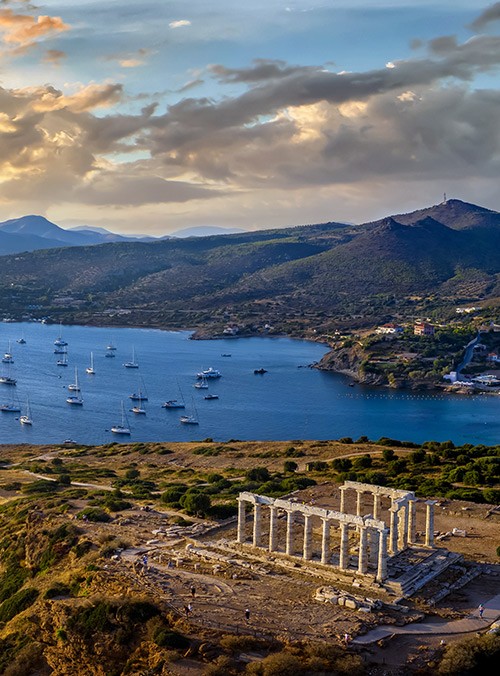 Smiling woman in traditional Vietnamese dress exploring a market
Smiling woman in traditional Vietnamese dress exploring a market
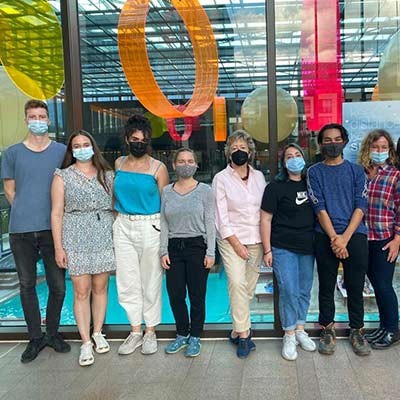 Scenic view of Ha Long Bay, Vietnam
Scenic view of Ha Long Bay, Vietnam
 Tourists enjoying street food in Hanoi, Vietnam
Tourists enjoying street food in Hanoi, Vietnam
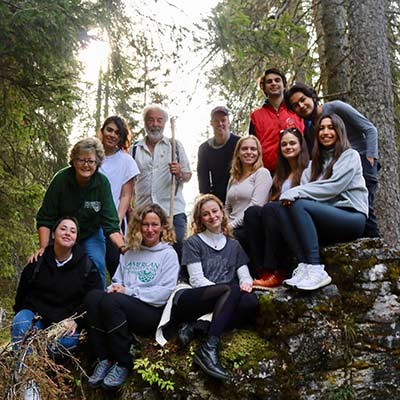 Traditional Vietnamese water puppet show
Traditional Vietnamese water puppet show
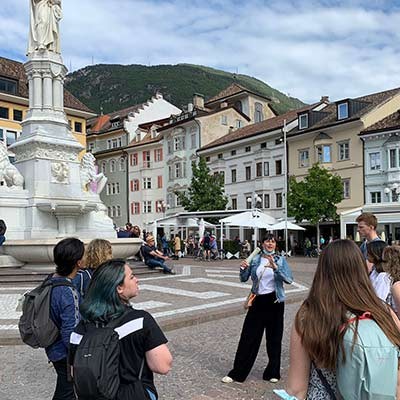 Ancient architecture in Hoi An, Vietnam
Ancient architecture in Hoi An, Vietnam
 A bustling market scene in Vietnam
A bustling market scene in Vietnam
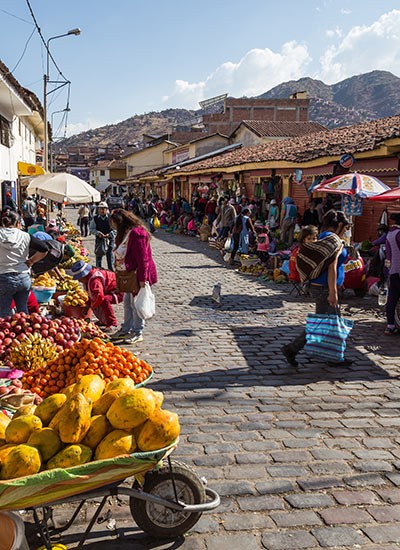 Beautiful rice terraces in Sapa, Vietnam
Beautiful rice terraces in Sapa, Vietnam
 Tourist taking photo with camera
Tourist taking photo with camera
 Smiling tourist looking away
Smiling tourist looking away
 Tourist smiling into distance
Tourist smiling into distance
 Tourist with a beautiful lake behind
Tourist with a beautiful lake behind
 Close up of tourist looking towards direction
Close up of tourist looking towards direction
 Tourist with a bright face
Tourist with a bright face
 Close up of map
Close up of map
 People drinking coffee at a cafe
People drinking coffee at a cafe
 Tourists in a city
Tourists in a city
 Tourists taking photos of food
Tourists taking photos of food
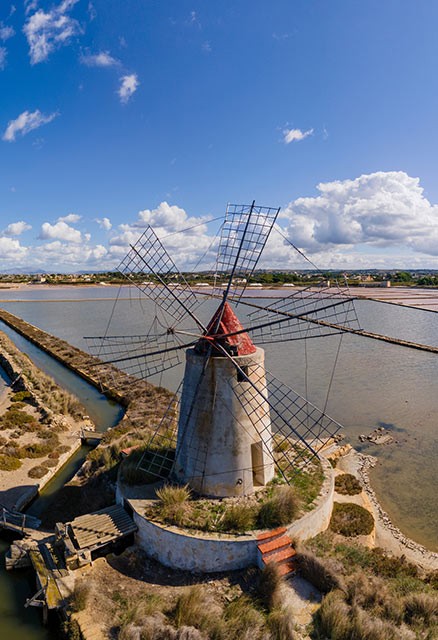 Tourists at a museum
Tourists at a museum
 Tourists looking at the display
Tourists looking at the display
FAQ: Bachelor of Travel and Tourism Management
1. What is the duration of a Bachelor of Travel and Tourism Management?
The duration is typically three to four years, depending on the institution and country.
2. What are the core subjects in a Bachelor of Travel and Tourism Management?
Core subjects include tourism principles, marketing, finance, operations, and sustainable tourism.
3. Is prior experience required for admission to a Bachelor of Travel and Tourism Management program?
Prior experience is generally not required, but relevant internships or work experience can be beneficial.
4. Can I specialize in a specific area within Travel and Tourism Management?
Yes, many programs offer specializations such as hospitality management, event management, or sustainable tourism.
5. What is the job outlook for graduates with a Bachelor of Travel and Tourism Management?
The job outlook is generally positive, with opportunities in hotels, travel agencies, tour operators, and event planning companies.
6. What are the salary expectations for someone with a Bachelor of Travel and Tourism Management?
Salary expectations vary depending on experience and job title, but the average salary ranges from $40,000 to $70,000 per year.
7. Are there opportunities for internships during a Bachelor of Travel and Tourism Management program?
Yes, most programs offer internship opportunities to gain practical experience in the industry.
8. What are the benefits of studying Travel and Tourism Management abroad?
Studying abroad can provide valuable international exposure, cultural experiences, and networking opportunities.
9. How can I prepare for a career in Travel and Tourism Management while in high school?
You can gain relevant experience by volunteering at tourism-related organizations, taking travel-related courses, and developing your communication and customer service skills.
10. What are some of the challenges facing the Travel and Tourism industry today?
Some of the challenges facing the industry include sustainability concerns, economic fluctuations, and changing customer preferences.



